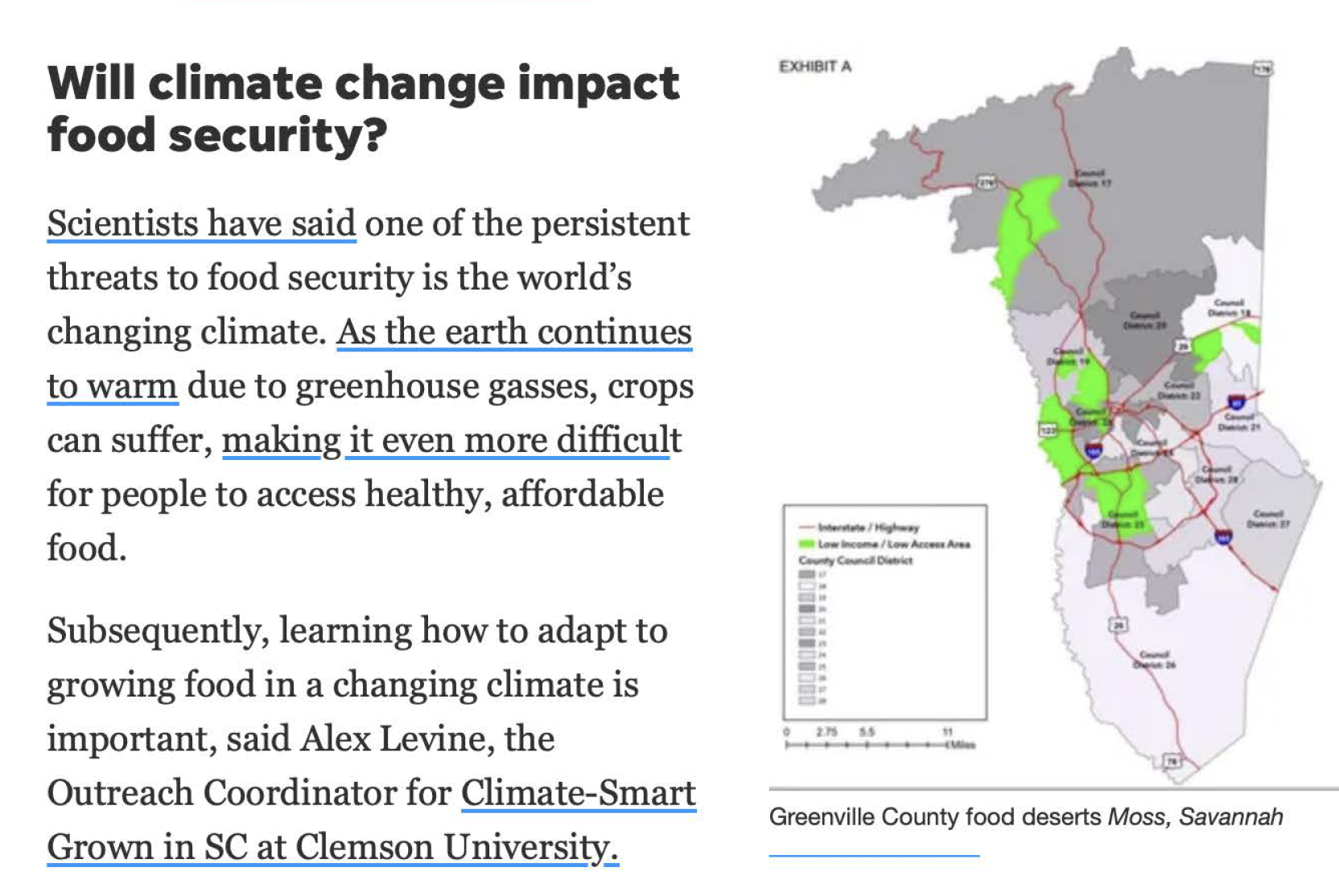The two land-grant institutions of South Carolina, Clemson University and SC State University, have partnered on a pilot project funded by the USDA-NRCS Partnerships for Climate-Smart Commodities. For the purposes of this project, a "climate-smart commodity" is defined as an agricultural commodity that is produced using agricultural practices - farming, ranching, or forestry - to reduce greenhouse gas emissions and/or sequester carbon.

About Climate-Smart Grown in SC
Why Climate-Smart?
The goal of this South Carolina pilot project is to increase the acreage and number of farmers using cover crops, prescribed grazing, reduced tillage, and other conservation practices that will not only reduce greenhouse gases but also improve water quality, biodiversity, and increase the productivity and well-being of our greater farming and foresting communities across the state.
How Does This Project Work?
Over a five-year period, Climate-Smart Grown in SC is providing ongoing technical and financial support to farmers, including small-scale and underserved producers, to facilitate the adoption of climate-smart practices. This project focuses on four commodities: peanut, leafy greens, forages for beef cattle, and forest products. A support team of field associates, researchers, and technicians are working with participants to implement climate-smart practices and monitor changes in carbon and other greenhouse gases associated with these practices. A market development team is also working with producers to explore new markets for the resulting climate-smart commodities.




